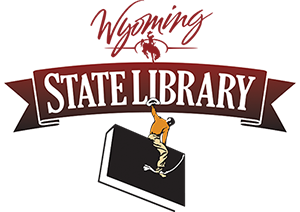 A majority of our nation’s nearly 17,000 public libraries provide programs to help identify health insurance resources and also training to increase familiarity with new technologies, according to the recently released 2014 Digital Inclusion Survey. This year’s survey caps two decades of research on public libraries and the internet and the expanded roles libraries are playing in their communities.
A majority of our nation’s nearly 17,000 public libraries provide programs to help identify health insurance resources and also training to increase familiarity with new technologies, according to the recently released 2014 Digital Inclusion Survey. This year’s survey caps two decades of research on public libraries and the internet and the expanded roles libraries are playing in their communities.
In Wyoming, 83% of libraries reported that they offered general internet training, 60% help individuals access and use e-government resources, and 69% help individuals apply for jobs. The Wyoming State Library includes a link to the Digital Inclusion Survey and other library data sources on its statistics page at will.state.wy.us/statistics/index.html.
National findings from the 2014 Digital Inclusion Survey include:
- Virtually all libraries (98%) offer free public Wi-Fi access;
- 95% of libraries offer summer reading programs to forestall the “summer slide” in reading achievement experienced when learning takes a holiday between sc
 hool terms;
hool terms; - Close to 90% of libraries offer basic digital literacy training, and a significant majority support training related to new technology devices (62%), safe online practices (57%) and social media use (56%);
- 76% of libraries assist patrons in using online government programs and services;
- The vast majority of libraries provide programs that support people in applying for jobs (73%), access and using online job opportunity resources (68%) and using online business information resources (48%);
- A significant majority of libraries host social connection events for adults (61%) and teens (60%) such as book discussion groups or gaming programs;
- 45% of libraries provide early-learning technologies for pre-K children; and
- More than one-third of all libraries provide literacy, GED prep, STEAM and afterschool programs.
Public libraries provide access to broadband, WiFi, and a range of public access technologies. By providing free and equitable access to Internet-enabled technology, public libraries help ensure that a lack of basic or more advanced technology skills is not a barrier to individual economic, learning, or other success. The Digital Inclusion Survey has attempted to document these interactions, demonstrating the ways in which public libraries serve and benefit the public and their communities.
Learn more at digitalinclusion.umd.edu/.
